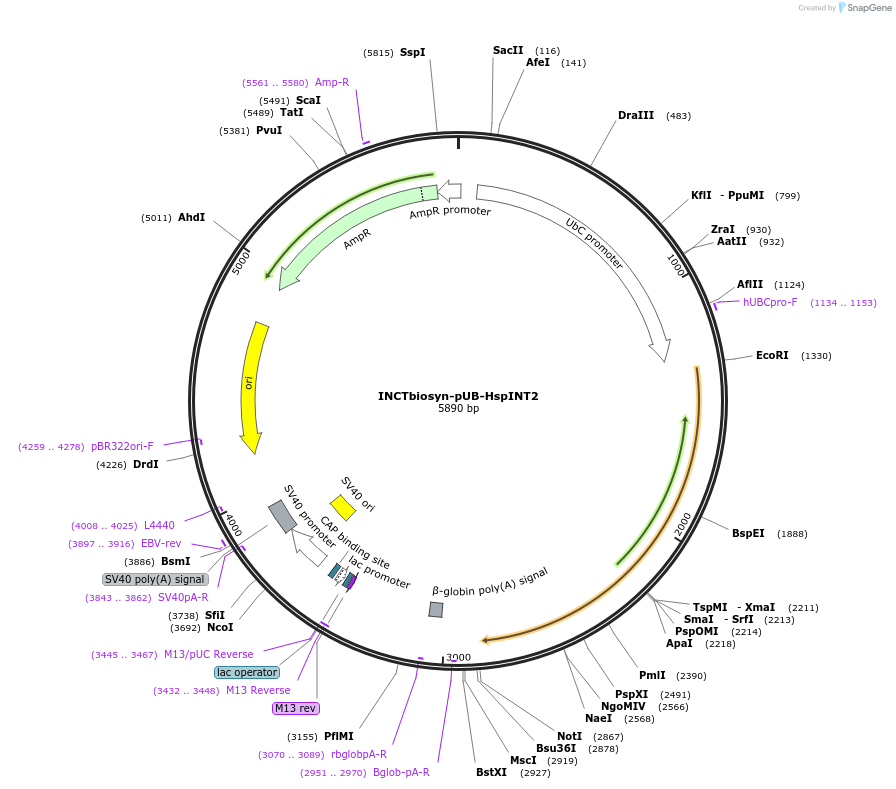INCTbiosyn-pUB-HspINT2
(Plasmid
#127512)
-
PurposePlasmid encodes H. sapiens codon optimized Integrase 2.
-
Depositing Lab
-
Sequence Information
Ordering
| Item | Catalog # | Description | Quantity | Price (USD) | |
|---|---|---|---|---|---|
| Plasmid | 127512 | Standard format: Plasmid sent in bacteria as agar stab | 1 | $89 | |
Backbone
-
Vector backbonepUB-GFP
-
Vector typeMammalian Expression
Growth in Bacteria
-
Bacterial Resistance(s)Ampicillin, 100 μg/mL
-
Growth Temperature37°C
-
Growth Strain(s)DH5alpha
-
Copy numberHigh Copy
Gene/Insert
-
Gene/Insert nameIntegrase 2 coding sequence codon optimized for H. sapiens expression.
-
Alt nameintegrase 2 Expression vector
-
Insert Size (bp)1530
Cloning Information
- Cloning method Unknown
Resource Information
-
Supplemental Documents
-
Article Citing this Plasmid
Terms and Licenses
-
Academic/Nonprofit Terms
-
Industry Terms
- Not Available to Industry
Trademarks:
- Zeocin® is an InvivoGen trademark.
Depositor Comments
The integrase 2 coding sequence was synthesized and cloned into pUB-GFP plasmid (Addgene #11155) replacing the EGFP coding sequence. The original integrase coding sequence (before H. sapiens codon optimization) was obtained from Yang, L. et al. Nat. Methods 11, 1261-1266 (2014).
These plasmids were created by your colleagues. Please acknowledge the Principal Investigator, cite the article in which the plasmids were described, and include Addgene in the Materials and Methods of your future publications.
-
For your Materials & Methods section:
INCTbiosyn-pUB-HspINT2 was a gift from Martin Bonamino (Addgene plasmid # 127512 ; http://n2t.net/addgene:127512 ; RRID:Addgene_127512) -
For your References section:
Genetic switches designed for eukaryotic cells and controlled by serine integrases. Gomide MS, Sales TT, Barros LRC, Limia CG, de Oliveira MA, Florentino LH, Barros LMG, Robledo ML, Jose GPC, Almeida MSM, Lima RN, Rehen SK, Lacorte C, Melo EO, Murad AM, Bonamino MH, Coelho CM, Rech E. Commun Biol. 2020 May 22;3(1):255. doi: 10.1038/s42003-020-0971-8. 10.1038/s42003-020-0971-8 PubMed 32444777



